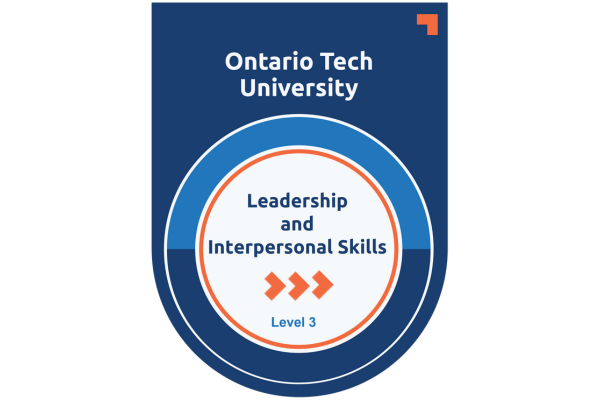
The art of effective problem solving: How soft skills training empowers leaders
By: Diana Kawarsky (Continuous Learning Instructor)
Problem solving has been widely recognized as a critical leadership skill, yet too many leaders struggle with inadequate tools and approaches. Fortunately, the solution lies in investing in quality soft skills training for supervisors.
Soft skills training equips employees with essential interpersonal abilities such as communication, collaboration, and negotiation—all of which can be used to tackle difficult problems head-on.
But how do you give your workforce the right resources and guidance to hone their problem-solving skills? Keep reading for some useful advice.
What is effective problem solving?
Effective problem-solving is a crucial skill in both personal and professional settings. It involves identifying and analyzing a problem, coming up with possible solutions, evaluating them, and choosing the best course of action.
Problem-solving skills are essential for personal growth and development as they help to enhance critical thinking skills, decision-making, and creative thinking. This soft skill is also crucial in the workplace, where individuals are required to handle various challenges that come their way.
Why is effective problem solving a critical leadership competency?
Below are reasons why effective problem solving is a crucial soft skill for managers.
-
Navigating uncertainty
Leaders must be able to make decisions quickly and accurately to stay ahead of the competition and ensure their organization is successful. Problem solving helps leaders navigate uncertainty and identify potential problems, allowing them to take proactive steps to address the issues before they become too costly or time-consuming.
-
Strategic decision-making
Effective problem solving also helps leaders make strategic decisions that will benefit their organization in the long run. By being able to analyze a situation from multiple angles, leaders can gain an understanding of how different solutions will impact their organization in the future.
-
Innovation and growth
By identifying problems early on, leaders can create solutions that will improve processes or products. Problem-solving skills for leaders enable managers to think creatively about how they can use existing resources more efficiently or find new sources of revenue that will help their organizations grow and thrive over time.
-
Optimizing resources
Problem solving enables leaders to optimize resources within their organizations and identify areas where resources are wasted or misused. As a result, leaders can analyze data, identify areas of improvement, develop strategies for optimizing resources, and implement those strategies effectively throughout the organization.
-
Conflict resolution
Good leaders must be able to identify potential sources of conflict, assess the situation objectively, and develop strategies for resolving conflicts fairly and constructively. Problem-solving skills enable leaders to handle difficult situations with tactfulness and diplomacy so everyone involved can move forward without lingering resentment or animosity toward one another.
-
Adaptation to change
Problem solving is also key when it comes to adapting an organization’s operations and strategies as external conditions change over time. It is important for leaders to recognize changes in the market or other factors that may affect their business so they can adjust accordingly and stay competitive in the marketplace.
-
Team engagement and motivation
As a key leadership skill, problem solving empowers leaders to foster team engagement by motivating team members toward shared goals. By creating an environment where everyone feels valued, respected, supported, and encouraged, leaders can generate enthusiasm amongst team members, ultimately leading to greater productivity overall.
-
Customer satisfaction
Effective problem solving also plays a crucial role in customer satisfaction since it enables leaders to find solutions quickly when customers have issues with products/services provided by the company. When companies can resolve customer issues promptly, they can maintain a good reputation with customers and improve customer loyalty over time.
-
Risk management
Lastly, leaders must be able to anticipate potential risks associated with certain projects/initiatives, evaluate those risks objectively, and devise strategies to minimize/mitigate the impact those risks have on operations. Problem-solving skills help leaders determine whether certain initiatives are worth pursuing while considering the likelihood of success for such ventures.
How leaders can improve their problem solving skills
If you’re looking for ways to improve the problem-solving skills within your organization, consider the following tips:
-
Recognize the problem: It’s easy to overlook problems or assume that they will go away on their own. By taking the time to identify and understand the problem, leaders can better assess its complexity and develop a plan of action.
-
Embrace a growth mindset: Read books, attend seminars, or take classes related to problem-solving strategies and techniques. By expanding their knowledge base, leaders can become more adept at identifying and implementing potential solutions.
-
Break down complex problems: Complex problems can seem overwhelming at first glance, but breaking them down into smaller parts can make them easier to tackle. Once the individual pieces have been identified, leaders can begin developing solutions for each one separately before tackling the entire issue as a whole.
-
Use structured problem-solving methods: Structured methods involve analyzing data, brainstorming potential solutions, testing hypotheses, and evaluating results to develop an effective solution that meets all of the criteria set forth by stakeholders or customers involved in the process.
-
Data analysis: By collecting data from various sources, such as customer surveys or market research studies, leaders can gain valuable insights into customer behavior or trends, which may provide clues about possible solutions for existing problems within an organization.
-
Seek feedback: Leaders should remain open-minded when receiving feedback from others as this allows them to explore different options and ideas, which may prove beneficial in finding an effective solution for the situation at hand.
-
Collaborate and network: Collaboration is key when solving complex problems, as different perspectives often lead to innovative ideas that would not have been discovered otherwise.
-
Lead by example: It’s important for leaders to demonstrate their commitment by actively participating throughout every step of the process while also encouraging team members, stakeholders, and customers alike.
-
Get training and coaching: Leaders should invest in leadership training for managers that aims to improve their problem solving skills. These programs typically include interactive workshops, lectures, and simulations, which allow participants to practice applying various techniques to resolving difficult situations.
Exploring the benefits of Continuous Learning
Continuous Learning has the Critical Thinking and Problem Solving course. This course is perfect for leaders looking to enhance their thinking and conflict resolution skills. This course also teaches new tools such as cloud computing to help you develop critical thinking and problem solving mindset.
Kawarsky, Diana . “The Art Of Effective Problem Solving: How Soft Skills Training Empowers Leaders”, The Soft Skills Group, 11 Dec. 2023, https://www.tssg.ca/problem-solving-skills-training-for-leaders/









